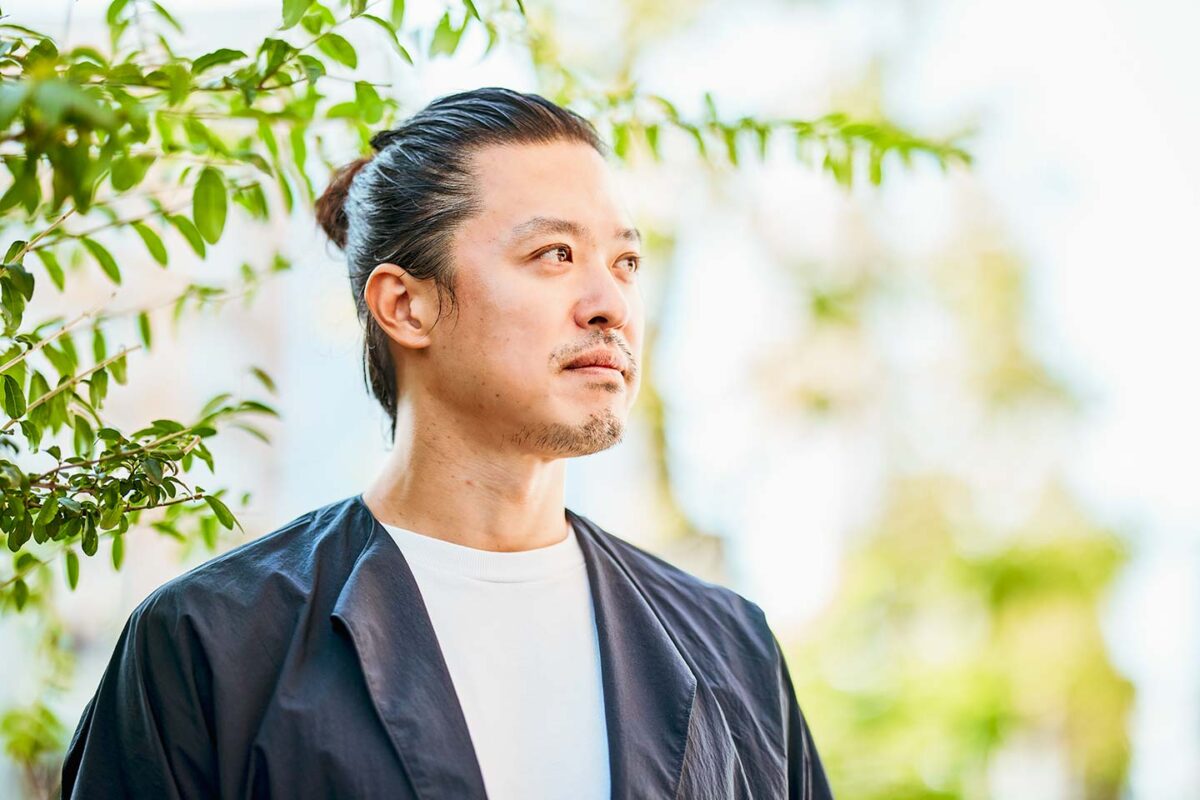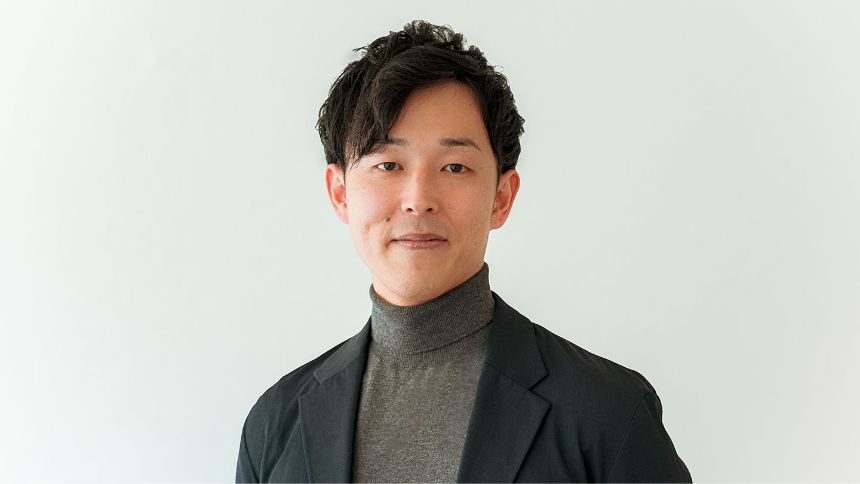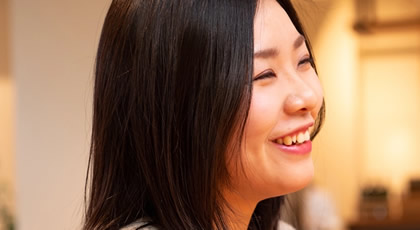
The Internet Creates Opportunities: Changing Systems for a Better World
Throughout his 22-years career as an engineer, Kosuke Arisawa has built and managed systems that have brought new value to society, including DeNA’s Mobage Town (now Mobage), a mobile game platform, and the print-sharing service Raksul. In June 2023, he joined TYPICA, drawn by the opportunity to use his skills to create even greater social impact. Since then, he’s taken on a CTO-like role within the company.
After dropping out of university, Arisawa spent more than 20 years immersed in the internet – a space that reflects humanity’s light and shadow, the sacred and the mundane. Along the way, he often grappled with tough questions: Were the systems he built truly benefiting society? Or were they simply creating new problems? Despite these inner conflicts, he has remained connected to the internet. Today, at TYPICA, he approaches his work with a renewed sense of purpose and clarity.

Using systems to solve social issues
“There’s an interesting company I’d like you to check out. If you’re interested, I can introduce you to its co-founder, Goto-san.”
It was January 2023 when Tomoko Namba, Managing Partner at Delight Ventures (an early investor in TYPICA), reached out to Arisawa, then working at Raksul.
Intrigued, Arisawa agreed to meet Masashi Goto, TYPICA’s CEO, both online and in person. Arisawa was impressed by Goto’s unwavering belief in TYPICA’s vision. By the end of their conversations, he had all but decided to make the leap. The only thing holding him back was a sense of loyalty to his colleagues at Raksul – especially the new graduates he had met during their final interviews. But a follow-up message from Namba, “Why not just take the plunge?” gave him the final push. By mid-February, he had made his decision.
“Coffee is the second-most traded commodity in the world after oil, with about 2.5 billion cups consumed globally every day. By applying my skills, I realized I could help producers in Africa and Latin America, who often have no idea where their coffee ends up, connect directly with roasters and consumers who appreciate their work. The idea of building a platform with that kind of global impact really excited me.”
Since joining TYPICA, Arisawa has worked on developing the company’s new online platform, the New Model, as part of the Product Team. His job is to continually refine the system to embody TYPICA’s vision: enabling producers to see feedback from coffee lovers like, “Shops using TYPICA’s beans are amazing,” or “It’s amazing to taste coffee where you can actually see the faces behind it.”
“In today’s world, where user experience is constantly improving across all platforms, poor usability can lead to significant missed opportunities. After all, if roasters aren’t satisfied enough to purchase green beans through TYPICA, we can’t deliver value back to the producers.”

Finding my own path
From an early age, Arisawa displayed an extraordinary ability to analyze and optimize systems created by others. At just five years old, he completed Nintendo’s popular action game “Super Mario Bros.” in just a week, an early indication of his natural talent.
When he was in junior high, “Mario Kart” became his obsession. He focused on a single racing course, trying out different strategies and experimenting to shave precious seconds off his lap time. Every second he saved brought a thrill that kept him coming back.
His breakthrough came when he discovered that by drifting, he could skim across water sections, and by using certain shortcuts, he could dramatically reduce his lap times. This discovery opened up a whole new world of possibilities, and he became so engrossed that he would often forget to eat or sleep.
At the time, Arisawa didn’t have friends who were as into Mario Kart as he was. And this was a time when there was no internet. He had no idea how his skills stacked up. That changed in 1999 when he finally got online and checked the global rankings on a whim. To his amazement, his time ranked third in the world.
The creative and out-of-the-box thinking he naturally honed while breaking records in gaming turned out to be a huge advantage in his professional life. In the undefined space of building new services and systems, where there’s no clear “right answer,” Arisawa truly comes into his own.
Looking back, Arisawa’s dislike for inefficiency took root in his childhood. In his local public elementary school in Sapporo, northern Japan, the academic standards were relatively low, and his classes rarely made it to the end of textbooks. His motivation to learn completely faded when a teacher from Tokyo bluntly said that “the pace of learning here is slower than schools in Tokyo,” confirming the reality he had vaguely begun to sense.
“I realized I wouldn’t be able to grow in that environment. Sure, I could’ve worked several times harder to make up for the gap, but it just felt like an inefficient way to use my energy.”
This realization led Arisawa to prioritize the people he works with when making career decisions. In fact, he left one company after only a year and a half, frustrated by the low level of the engineers and feeling like he wouldn’t grow there. He later joined DeNA as the fifth engineer on Mobage Town’s team, eager to develop his skills alongside highly capable colleagues.
“At DeNA, I encountered many younger engineers who were far more skilled than me. That’s what makes the engineering world special. People who master one specific skill tend to deliver incredible results. When I was interviewing candidates at my previous job, I always dug deep into what they’d truly committed themselves to. I enjoyed building relationships based on mutual respect by understanding each person’s unique depth.”

Finding new purpose in work
While Arisawa was naturally gifted at gaming, school was never his strong suit. He wasn’t interested in studying to begin with and refused to do homework. Though he doesn’t remember much, his mother recalls that “he was the kind of kid who couldn’t really go along with group behavior.” He didn’t exactly stand out as a misfit, but he just couldn’t adapt to the lockstep mentality of Japanese education.
Unsurprisingly, Japan’s conformist education system didn’t suit him, and Arisawa eventually dropped out of university. Though he had enrolled in an architecture program following his passion for housing design, he quickly became disillusioned with the rigid approach to assignments.
During his university days, he cycled through various part-time jobs to make ends meet, but none lasted long. From newspaper delivery to conveyor-belt sushi restaurants to pachinko parlors, most jobs lasted three months at best, with one ending after just a week. The sole exception was a two-year stint as a private tutor, working roughly once a week, where he spent more time discussing life than academics with his students.
It was around this time that Arisawa got into pachislot. Learning from his friends, studying strategy guides, and researching online, he quickly became confident in his ability to win. Soon, he was spending most of his time in pachinko parlors, earning an average of 300,000 yen a month, twice the starting salary of a university graduate in his hometown. As his earnings grew, the idea of becoming a “normal working adult” faded further from view, and the prospect of a conventional career seemed increasingly distant.
Even so, he lacked a dream or a clear goal to pursue. In search of a way out, Arisawa turned to the internet. He found valuable guidance on 2channel, an anonymous online bulletin board. There, recommendations for books by Peter Drucker and Dale Carnegie caught his attention, and those books became a stepping stone in his attempt to leave the pachislot lifestyle behind.
What first sparked his interest in business books was a visit to a friend’s house, where he picked up a copy of “Rich Dad Poor Dad.” Its core message – don’t settle for low wages and grueling work; find smarter ways to earn – struck a chord and fueled his desire to take a different path.
A major turning point came for Arisawa when he visited Tokyo to attend an in-person event for 2channel users. Listening to the conversations of sharp thinkers like Hiroyuki Nishimura, the platform’s founder, he felt the gap in skill and knowledge between Tokyo and his hometown of Hokkaido.
One presenter at the event was a Chinese man, A, who would later become one of Arisawa’s colleagues. At the time, A was working as a small truck driver, earning money day by day, while using his engineering skills to start a business similar to Uber Eats: matching cargo with drivers using i-MODE email.
But as a Chinese immigrant in Japan, A faced significant hurdles, including social prejudice and a lack of credibility or proven track record. To secure funding, he pitched his idea on the TV show “Money no Tora” (the inspiration behind the American reality TV program “Shark Tank”), where investors decide whether to back an entrepreneur’s idea. While he initially secured investment on-air, the deal fell apart when further evaluation revealed flaws in his business plan.
“You seem like you’ve got a lot of energy. I want to work with you,” A told Arisawa. With no solid plan but a gut feeling that things might work out, Arisawa used his pachislot winnings to move to Tokyo at the age of 21.
When they met up, A revealed their first task: sending spam emails to help a dating site client grow its user base. As regulations on spam tightened in Japan, they moved the operation to China, where both the emails and the web servers were managed. Surrounded by talented engineers, including A, who was a brilliant programmer excelled at creating cost-efficient systems, Arisawa picked up hands-on experience building dating platforms, managing e-commerce sites, and creating web applications.

“At that point, I was working just to get by. I wasn’t really thinking about whether what I was doing was right or wrong. I just focused on getting the job done. But as I dove deeper into the work, I got faster and more efficient. Even writing a simple program could replace hours of tedious manual work, and that was so fascinating to me.”
“What really motivates me is knowing that my work makes a real difference, whether it’s reducing the workload for my team or improving the user experience through creative solutions. If that means doing repetitive tasks along the way, I’m fine with it. But with jobs like delivering newspapers or washing dishes, no matter how efficient you make them, it’s hard to feel like you’re making an impact. That’s the big difference for me.”
Arisawa found new purpose in his work at Raksul. With the vision of “Better Systems, Better World,” Raksul took on the massive but outdated printing industry. By tapping into the unused capacity of about 20,000 printing machines across Japan, the company offered a service that was faster, cheaper, and easier, leading to rapid growth.
“The goal was to increase e-commerce adoption in the 3 trillion-yen printing market, cutting inefficiencies while helping customers save costs and streamline their operations. That felt like the kind of work worth doing. It made me think, ‘Maybe I can keep going in the world of the internet.’ Before that, I had mostly worked on B2C services, and I often found myself fixating on the negative sides of the internet.”

Thanks to the internet
Steve Jobs famously limited how much his children could use computers and smartphones. Bill Gates didn’t let his children have mobile phones until they turned 14. Among tech insiders who understand the darker side of the internet, it’s pretty common to enforce rules like “no smartphones or internet before high school.”
The social games Arisawa worked on did have positive aspects. For people who struggled socially or lacked a sense of belonging at school or work, games could provide a kind of safety net, allowing them to feel connected and less lonely. But even with these positives, Arisawa couldn’t ignore the negatives.
“Whenever I see negative news involving social media, it always makes my chest tighten. Messaging apps are so convenient, but when I hear stories, like my friend’s daughter chatting with strangers, it’s a stark reminder of how dangerous the internet can be.
That’s why I feel at peace with the work I do at TYPICA. Helping share the joy of roasters and coffee lovers with the producers behind great coffee doesn’t come with any of that unease. It might sound idealistic, but I really do want everyone to be happy.”
As an elementary school student, Arisawa wasn’t just absorbed in games. He also developed a keen interest in global poverty through what he learned from TV, books, and manga. Stories like “Barefoot Gen,” a comic series based on the author’s experience with atomic-bombing, as well as Osamu Tezuka’s work such as “Buddha” and “Phoenix,” opened Arisawa’s eyes to the flaws in society and the contradictions of human nature.
The phrase from “Buddha” – “Life is suffering” – left a lasting impression and became a cornerstone of Arisawa’s worldview. It helped him work through questions that had always bothered him: Why is bullying and fighting so common, and why do even teachers and children like him sometimes contribute to it? Why did his father keep working a job that clearly didn’t make him happy? Seeing life as inherently tied to suffering gave him a way to understand these dilemmas.
“That’s why I want to create little pockets of joy in life, through games, manga, or even a good meal, and share those moments with others.
The internet is probably the best tool we have for sharing and creating joy, but I can’t say I like it. I avoid negative voices as much as I can. That said, it’s also a place where anyone, no matter their background, can climb up the ladder if they’re willing to put in the effort and get creative.
For me, I’ve been lucky. Falling off the traditional track didn’t stop me from building a career, but that’s only because I had a natural drive to master things and a knack for engineering. If I hadn’t discovered the internet, I really don’t know where I’d be now. That’s why, even with all its flaws, I continue to work in this space.”























